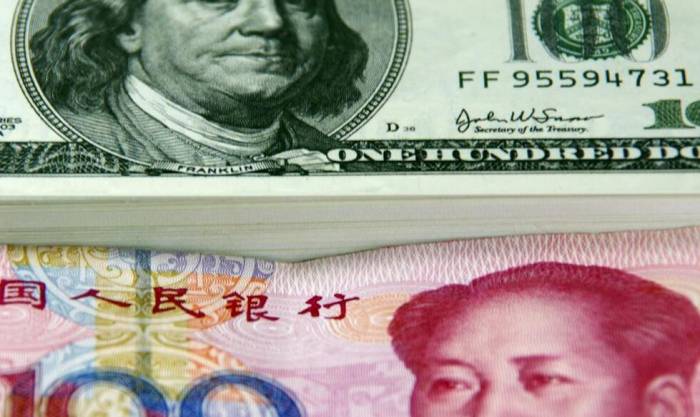On September 11th, the international oil prices suddenly plummeted, as if dousing the market with a bucket of cold water.
The Brent crude oil futures price fell to its lowest point in nearly three years, with each barrel selling for only $69.19, a drop of as much as 3.69%.
This sudden storm caught many investors off guard.
However, China appeared particularly composed amidst this turmoil.
As a key driver of global oil demand, China is well aware of the value of low oil price periods and has already begun to stock up on crude oil in large quantities.
According to authoritative data statistics, China's strategic oil reserves have climbed to a full capacity of 503 million barrels, marking that it has reached the limit of its current reserve capacity.
It is expected that the utilization rate of the reserve capacity will exceed 90% by 2024.
This foresight has given China more confidence and options amidst global oil price fluctuations.
Speaking of oil prices, they have been "twists and turns" recently.
The Organization of the Petroleum Exporting Countries (OPEC) has revised down its forecast for global oil demand growth in 2024, and financial institutions such as Morgan Stanley have also turned bearish on oil prices, even predicting that they will fall into the $60 range.
Goldman Sachs, however, holds the opposite view, believing that physical demand remains strong and that oil prices are expected to rebound in the future.
The U.S. Energy Information Administration (EIA) is even more optimistic, predicting that global oil demand will reach a new high this year, with inventories further declining, driving oil prices to rise above $80 per barrel.
In March, China National Offshore Oil Corporation (CNOOC) brought exciting news: above the vast Bohai Sea, another billion-ton oil treasure trove has been rediscovered, with proven geological reserves of oil astonishingly reaching 104 million tons.
This discovery, ten years after the last major oil and gas breakthrough in the same waters, undoubtedly adds a bold stroke to China's energy map!
In this oil price game, China seems to be the most composed onlooker.
Faced with oil price fluctuations, China has not been flustered but has instead taken the opportunity to massively stock up on oil, raising its strategic oil reserves to an all-time high.
This move not only demonstrates China's deep understanding of energy security but also reveals its foresight in energy strategy.
While the world is still struggling over the competition for traditional energy, China has already accelerated in the field of green energy.
From nuclear power to solar, wind, and hydropower, China has achieved remarkable success in almost every field.
Nuclear power construction: China's number of nuclear power units under construction is unparalleled globally, ranking first in the world.
Domestic nuclear power technologies such as Hualong One have also gone global, becoming a "hot cake" in the international market.
The World Nuclear Association has stated that China is meeting its growing power demand with cleaner energy.
Renewable energy: The Baihetan Hydropower Station on the Jinsha River, combustible ice extraction technology, space-based solar power stations...
These projects that sound futuristic are gradually becoming a reality in China.
Especially combustible ice, as a strategic substitute for future oil, China's proven reserves are enough to make the United States, Japan, and Germany envious.
"Artificial Sun": If the above achievements are not enough to shock the world, then China's "Artificial Sun" project is undoubtedly the "ultimate dream" in the energy field.
Through nuclear fusion reactions, this project is expected to provide almost unlimited clean energy for humanity, completely changing the pattern of energy utilization.
Currently, China's "Artificial Sun" project has achieved multiple breakthroughs, taking another step towards commercial application.
As the global energy sector debates the oil price fluctuations and the development of new energy issues, China has announced a sensational good news - in the vast Bohai Sea area, a billion-ton oil field has been successfully discovered.
The treasure discovered this time is the rare naphthenic heavy oil, known as the "rare earth of the oil industry."
This significant discovery undoubtedly adds a bold stroke to China's energy strategy map, injecting unprecedented new vitality.
Naphthenic heavy oil, this seemingly ordinary petroleum product, is a strategic raw material for the national economy and major engineering construction.
Its emergence not only means that China will have a richer reserve of petroleum resources but will also provide strong support for China in fields such as high-end equipment manufacturing and aerospace.
China has not stopped at this discovery.
With the new generation of upgraded SAGD ultra-heavy oil development technology, PetroChina Xinjiang Oilfield Company has successfully solved the world-class problem of ultra-heavy oil development, achieving a leap in heavy oil production.
The breakthrough of this technology not only opens up a new path for China's oil exploration and development but also sets a new benchmark for the global energy industry.
In the wave of global energy transformation, China is undoubtedly at the forefront.
From the rapid development of green energy to the upgrading of traditional energy, China is interpreting the profound connotation of the "energy revolution" with practical actions.
The road to energy transformation is not smooth sailing.
Faced with multiple challenges such as technical bottlenecks, financial pressure, and international competition, China needs to maintain a clear mind and determination.
It must continue to increase R&D investment, promote continuous innovation and breakthroughs in energy technology.
It also needs to strengthen international cooperation and exchange to jointly address global energy challenges.
China also needs to focus on the optimization and upgrading of its energy structure.
While vigorously developing green energy, it must also focus on the clean and efficient use of traditional energy.
By building a diversified, clean, and efficient energy supply system, it ensures national energy security and sustainable economic and social development.
The discovery of the billion-ton rare earth oil field undoubtedly injects new momentum into China's energy strategy.
But this is just the beginning, and there are more possibilities and challenges in the future of China's energy waiting for us to explore and deal with.
In this era full of variables, China is facing the challenges of global energy transformation with a more open and inclusive attitude.
We believe that in the near future, China will not only become an important participant and contributor to the global energy market but also a leader in leading the global energy transformation.






























Share Your Comment
hare your unique insights